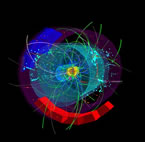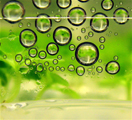


Qualified staff are encouraged to apply for the jobs below, or forward to others who might be interested. Go here to see a full listing of open positions.
Mechanical Engineer (Engineering) Design, analyze, and follow fabrication of scientific equipment.
Postdoctoral Fellow (Chemical Sciences) Participate in highly unique research centered around the application of novel femtosecond high harmonic generation light sources.
Bioinformatics Systems Analyst 2/3 (Genomics) Perform high-quality curation of genome project catalogs and databases, architecture of genome project ontologies, and controlled vocabularies for more effective annotation.
Postdoctoral Fellow (Materials Sciences) Participate in research as a crystal grower with experience in optical (luminescence) and/or electrical (mobility, carrier life time) crystal characterization.
 Tonight in San Francisco’s Barbary Coast neighborhood, the Swiss Consulate annex swissnex sponsors “Everything You Always Wanted to Know About the LHC,” featuring Physics Division theorist Ian Hinchliffe, head of Berkeley Lab’s ATLAS group, plus Malika Meddahi from CERN and Elizabeth Clements from Fermilab. Hinchliffe will explain LHC science, Meddahi how the collider works, and Clements the economic benefits of accelerators. Doors open at 6:30 p.m. and presentations begin at 7 p.m., followed by a reception and networking. The event is free but registration is required. Go here for registration, directions, and parking.
Tonight in San Francisco’s Barbary Coast neighborhood, the Swiss Consulate annex swissnex sponsors “Everything You Always Wanted to Know About the LHC,” featuring Physics Division theorist Ian Hinchliffe, head of Berkeley Lab’s ATLAS group, plus Malika Meddahi from CERN and Elizabeth Clements from Fermilab. Hinchliffe will explain LHC science, Meddahi how the collider works, and Clements the economic benefits of accelerators. Doors open at 6:30 p.m. and presentations begin at 7 p.m., followed by a reception and networking. The event is free but registration is required. Go here for registration, directions, and parking.
 Berkeley Lab has been awarded nearly $18 million from the American Reinvestment and Recovery Act to build an advanced biofuels process development facility. Funded by the Department of Energy’s Office of Energy Efficiency and Renewable Energy, this new facility will help expedite the commercialization of next generation biofuels by providing industry-scale test beds for innovative technologies. Called the Advanced Biofuels Process Development Unit, it will be the only facility of its kind available for public use. More>
Berkeley Lab has been awarded nearly $18 million from the American Reinvestment and Recovery Act to build an advanced biofuels process development facility. Funded by the Department of Energy’s Office of Energy Efficiency and Renewable Energy, this new facility will help expedite the commercialization of next generation biofuels by providing industry-scale test beds for innovative technologies. Called the Advanced Biofuels Process Development Unit, it will be the only facility of its kind available for public use. More>
 EH&S: Monday Talk on 'Sociology' of Human Error and Accidents
EH&S: Monday Talk on 'Sociology' of Human Error and Accidents The Lab’s Environment, Health and Safety Division is hosting a visit by Earl Carnes, with the Department of Energy, who will discuss “Human Error and Accidents,” on Monday at noon in the Building 50 Auditorium. He’ll touch on some infamous accidents, such as Three Mile Island and Chernobyl, to illustrate how humans are often blamed and punished for accidents, but that human error has little to do with the cause or prevention of disasters. For more information, contact Don Lucas (x7002).
 EETD: Suze Orman Plugs Lab’s Home Energy Saver
EETD: Suze Orman Plugs Lab’s Home Energy Saver Suze Orman, the personal finance expert, author, and columnist for Oprah magazine, recommends using the Berkeley Lab-developed Home Energy Saver website for finding the best home improvement and equipment investments to make homes energy-efficient. Her recommendation appears in an article titled “The Cheapest Way to Go Green,” on Oprah.com. A new improved version of Home Energy Saver is in development and will go live on the website later this year.
 UC Update: Details on Restart of Retirement Contributions in Latest Newsletter
UC Update: Details on Restart of Retirement Contributions in Latest Newsletter The new edition of Our University, the UC newsletter for faculty and staff is now available. Included are stories on the restart of contributions to the UC retirement plan, possible options for the future of retirement benefits, and the affects of the health care reform law on UC-sponsored medical plans. More>
 Wellness: Ways to Reduce Cancer Risks
Wellness: Ways to Reduce Cancer Risks What you eat and drink, how active you are, and other lifestyle behaviors all can affect your risk for cancer. Smoking damages nearly every organ in the human body, is linked to at least 15 different cancers, and accounts for some 30 percent of all cancer deaths. Sunburns will fade, but damage to deeper layers of skin remain and can eventually cause cancer. That's why sun-safe habits should begin in childhood and last a lifetime. These behaviors are important ways to reduce your risk of cancer, as well as heart disease and diabetes. More>
Today at Berkeley Lab encourges comments, suggestions, and story ideas. Please send them here.
TABL is produced by Public Affairs' Communications Group